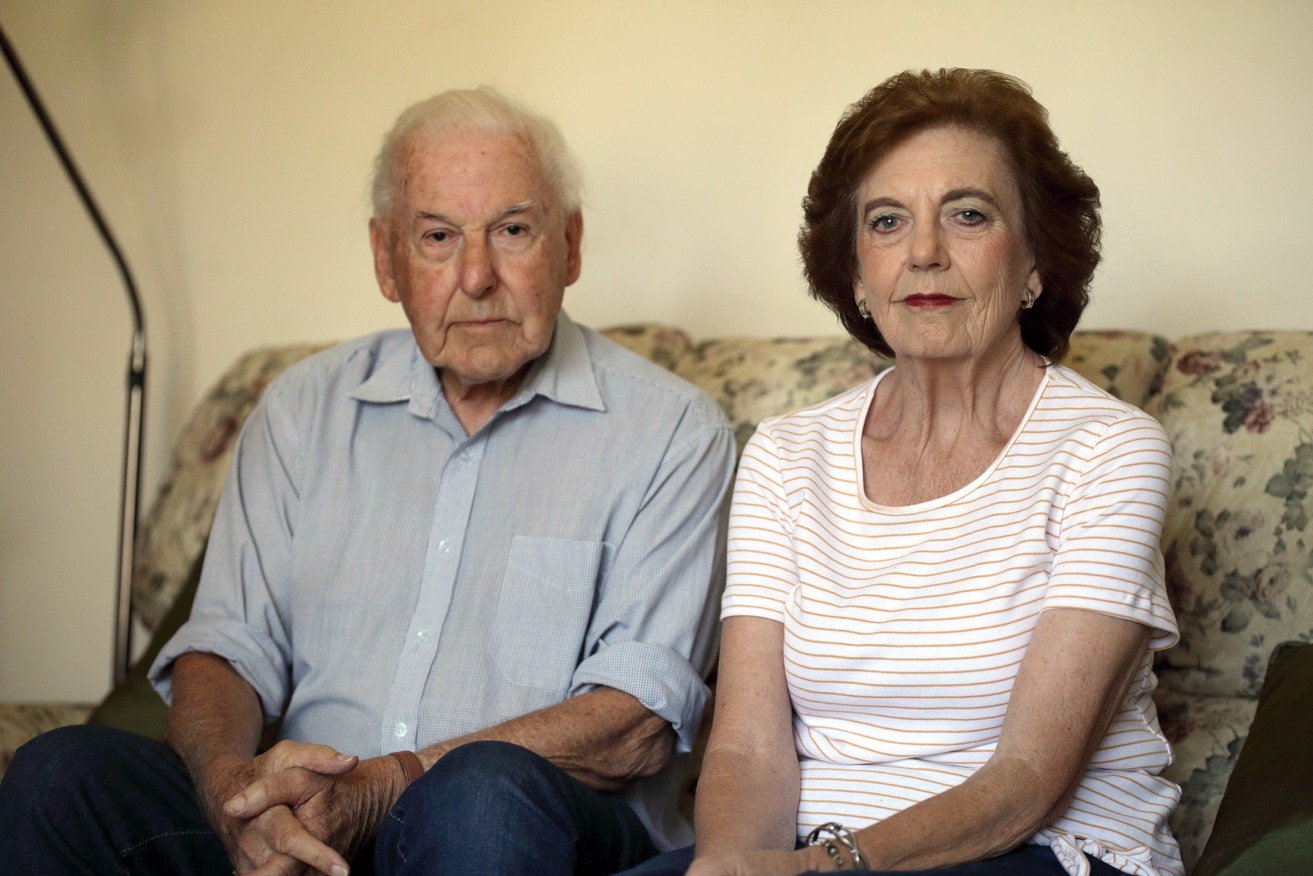After all of the abuse horrors, what have we really learned?
The aftermath of the George Pell conviction has led the family of Andy MacQueen – an abuse victim from another time, another place – to speak up, and question what has really changed in protecting and helping the innocent.


David and Loryn MacQueen hope the death of son Andy can be a catalyst for change in the mental health system. Photo: Tony Lewis/InDaily
Andy MacQueen was let down catastrophically at both ends of his life: as an 11-year-old boy, abused by a church official whom church leaders protected; and finally as a 53-year-old, sent home from an Adelaide public hospital emergency department despite being in acute mental distress and articulating plans to kill himself.
The abuse, betrayal, cover-ups, the blind eyes and deaf ears damaged Andy MacQueen, who carried his terrible secret for 23 years, fighting depression and heroin addiction for longer.
Rock music, playing with bands, his friends, children and family became the mainstay of Andy’s life. They offered some happiness and respite from the demons which, away from the spotlight, haunted his days and nights.
When those demons eventually seemed just too much for him to bear, Andy reached out for help, only to be let down once again.
He was not admitted for care at Modbury Hospital, nor found a place elsewhere in an overstretched system.
So, the next day, at his parents’ home, Andy gave up, to be found by those who spent years trying to pick up the pieces of his life.
The circumstances of Andy’s death are still under investigation and the family are keen not to apportion individual blame.
Rather, they wish to see a review of the mental health system as it now stands – the pressures, policies and priorities under which it operates.
Australia’s suicide statistics are shocking.
In 2017, 3128 people took their own lives. Most were male – 2348, to 780 female. Eight lives lost a day.
By contrast, the national road toll in 2017 was 1225 deaths.
Imagine the uproar if 3000 people died on Australia’s roads each year.
There would be demands for action at the highest levels: press conferences and calls for better policy, better infrastructure, education and funding. The issue would be front and centre.
But suicide continues to hide in the shadows. It continues to hold a stigma, an air of failure, to be whispered about rather than discussed openly as a social, community and public health scourge.
And this scourge affects abuse survivors in high numbers. The royal commission into institutional responses to child sexual abuse spoke to many survivors: 16.4 per cent reported having attempted suicide and almost one in five (19.8 per cent) spoke about having had thoughts of suicide.
The case for greater support for survivors could not be greater.
Lifeline last year took nearly one million calls.
RU OK?, arguably one of the more effective suicide awareness and prevention campaigns, was started by one man in Sydney, not a department or ad agency.
Yet, when despairing people finally do make that momentous effort to admit they’re not ok, that they need a hand and some help, where do they turn?
For many, their destination is the public hospital emergency department.
Restructuring and rationalisation of the public health system at state and national level over the past few decades has seen the mental health system decentralised, modernised, compartmentalised to units and teams inside communities across the city, many attached or near to metropolitan health hubs.
Services, facilities, mental health professionals ready to come out to talk to you and the phone numbers to reach them on are all there, if you have the knowledge and time to navigate the system.
Emergency departments and their dedicated, overworked staff, and medical professionals within the hospital, have become the default setting, the coalface of mental health crisis.
Added to treating the usual queues of physical injury and forced to deal with the stressful phenomenon of ramping, ED staff are now expected to assess patients suffering acute mental distress, forced to wait hours under bright lights for help, their private torment on public display.
Emergency departments have become the must-see destination for mental health patients, a dumping ground for those who can’t be found a space in an overcrowded system.
Patients have been manacled to emergency department beds for two days. Imagine the stress of the patient, other patients, the staff.
Public hospitals and emergency departments should not be the mental health frontline, the triage zone for desperate people simply trying to live.
We can, we must, do better. Demand better.
In the months following Andy MacQueen’s funeral and its painfully honest, sad, angry eulogies, his family maintained a dignified silence.
That was until March, when Cardinal George Pell was convicted for child sexual abuse – a conviction he is appealing – and his lawyer began horse-trading for a lesser sentence for the rape of a 13-year-old boy.
“This is no more than a plain, vanilla sexual penetration case where a child is not volunteering or actively participating,” said Robert Richter, QC, who later apologised following a backlash he clearly didn’t foresee.
For the MacQueens, the dismissive legal condescension employed by a high-priced silk bought back all the horrors of the attitudes and cover-ups arrayed against Andy and other abused children a generation before.
They wonder what lessons have truly been learned.
For Andy, all the others, and their families, the scars last a lifetime and beyond.
David Eccles is news editor at InDaily.
If you or someone you know needs help, you can call LifeLine on 13 11 14 – or you can call the Mental Health Triage Service / Assessment and Crisis Intervention Service on 13 14 65.




